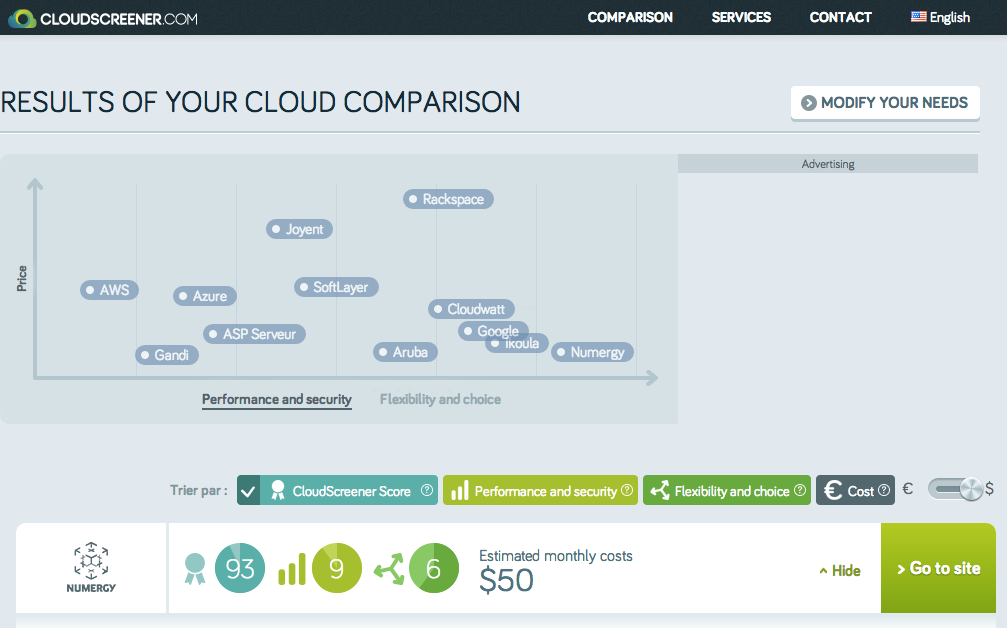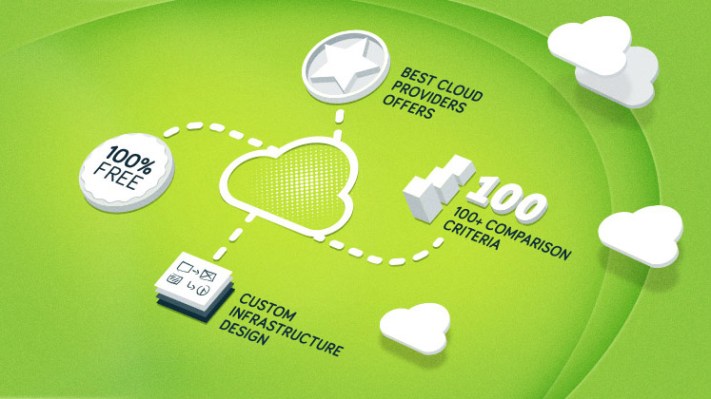What cloud should you host your applications on? That question is getting harder and harder to answer as more players join the fray and as existing companies continually add new features and change their prices. CloudScreener wants to help you by asking you a couple of basic questions about your needs. It then combines that with the performance data it gathers from all of the different services in its library and gives you a sorted list of possible solutions.
The service breaks its tools down into three different wizards for finding clouds for hosting websites, business applications and your data. Say you are looking for a place to host a business application. You tell CloudScreener how many users you need to support, what operating system you’ll use, where your users are located and a few other data points and it’ll come back with a couple of options ranked from 1 to 100 based on your estimated cost, the performance level you can expect and the kind of features the service supports.
For pricing data, the company scrapes each provider daily and for performance data, it spins up its proprietary benchmarking software on a number of instances on each service every six hours. With that, it can gather data about write and read speeds, network performance and latency, as well as CPU and memory performance. For network data, CloudScreener is partnering with Cedexis.

As CloudScreener co-founder Anthony Sollinger, who started the company with Nicolas Drouet, told me at the OpenStack Summit today, the Paris-based company now has 15 clouds in its index. The idea is to add more services in the long run, but the idea is to mostly focus on the major global players for now.
Looking ahead, CloudScreener expects to launch a paid service for companies that need more flexibility and granularity from a tool like this. With that, users will be able to exactly specify what they are looking for in their infrastructure (number of cores, RAM, etc.).
As Sollinger also told me, the company has now raised 600,000 euros from three undisclosed, France-based angels. The company plans to use these funds to expand its team, both to work on its product and to increase its marketing team, especially in the U.S.
